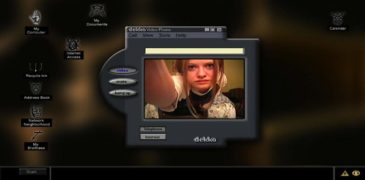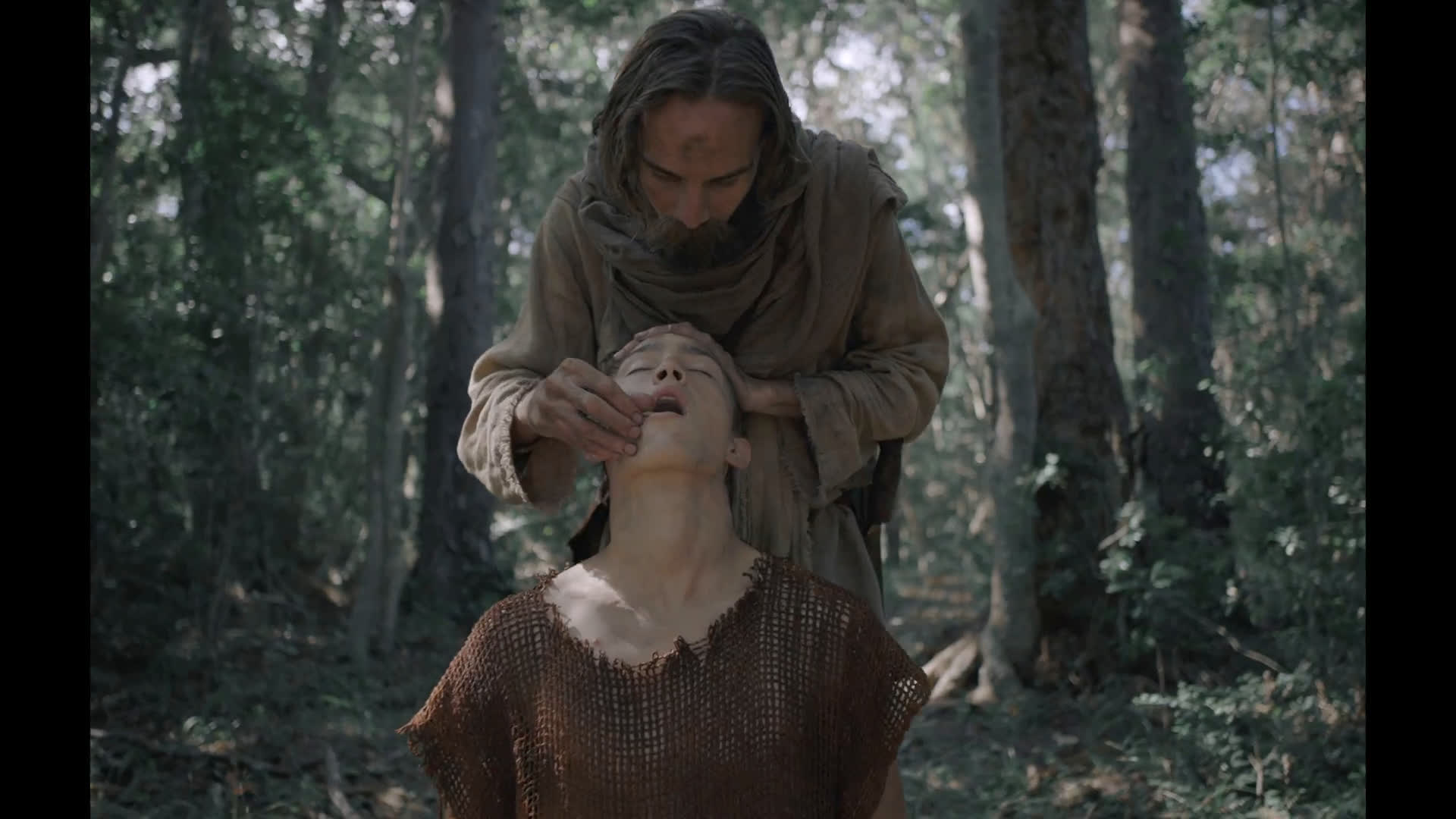
Warning to those with mycophobia – this is not the film for you.
Gaia is a South African ecological horror film, full of mushroom monsters, skin-crawling body horror and raving sermons about the demise of mankind. Switching seamlessly between English and Afrikaans, this is no humorous splatterfest but a dark, sumptuous dive into the horrors of nature.
Our lead, Gabi, is a park ranger in an ancient forest. When a downed drone requires her to leave the safety of her boat to explore in the forest, she’s caught in a man-made trap. Taking the only sensible action and finding refuge in an empty hut, she is found by a father and son – Barend and Stefan – living in the forest who take her in and offering to help her home…eventually.
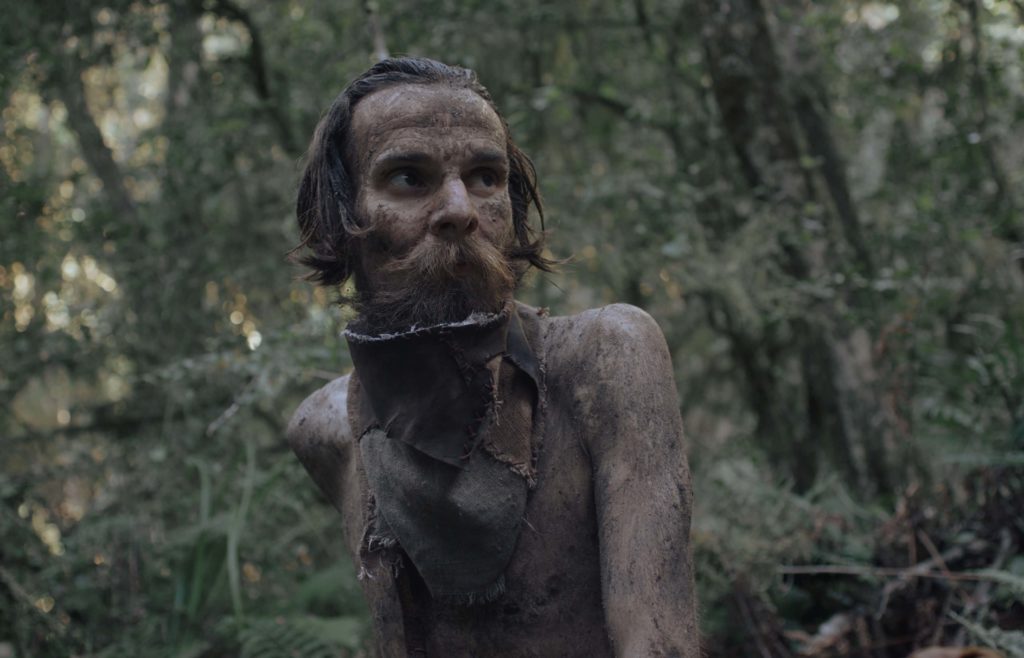
Although kind at first, the religious fervor of the father and seeming simplicity of the son are truly unsettling. Bored and curious, Gabi finds Barend’s writings which liken men to apes and speak of ecological apocalypse. The strange family are living on top of the largest organism in the world, most of which is underground, and regularly pray to it. Fun fact: in real life the biggest organism on earth is also a mushroom (it just happens to be in Oregon)!
Deciding to stay, she becomes an Eve figure to the son’s Adam; teaching him, being kind to him and encouraging him to think and question. She represents to him not just forbidden knowledge but lust, although the film thankfully steers away from the predictable and frankly lazy tendency to include rape as a point of horror, instead making her body both desirable and the source of most of the film’s body horror.
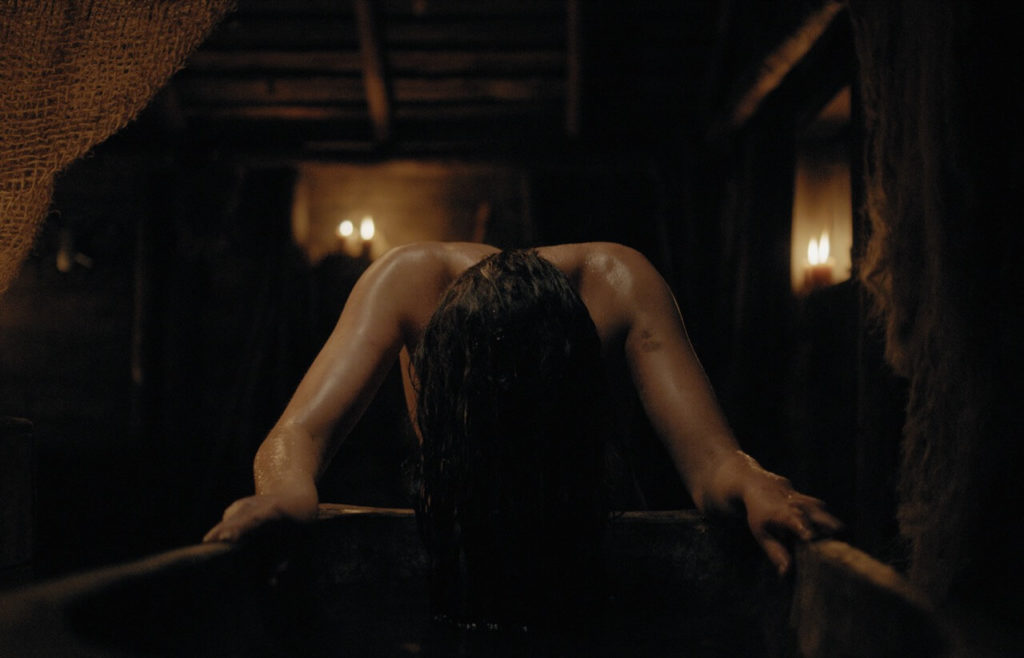
As a lead, Gabi is smart, capable and adaptable. Barring a few mistakes, she acts with the kind of thought-through agency that most horror leads are denied, which only amplifies the horror of her situation. The tension between Gabi and Barend, played out as the rational/religious or human/nature dichotomy, builds beautifully. He is utterly terrifying.
The film is slow, measured and sumptuous, the horror unfolding in darkened corners. It lingers on the unique and disturbing sounds of nature, decay and growth, the spongy sounds of mushrooms between teeth and tongue, the itch of an infection beneath the skin and the plucking of sores.
The cinematography only underlines this with slow panning shots and deep muted colour tones, lingering heavily in the tan fleshy tones that make human and mushroom seem too close for comfort. There’s a slight theme in the filming, wherein the human is split across the screen and the natural is central, whole. The entire film in fact confuses the eyes, forcing the viewer to constantly reexamine and reevaluate what they’re seeing. It’s a very nice touch if you’re into that kind of thing.
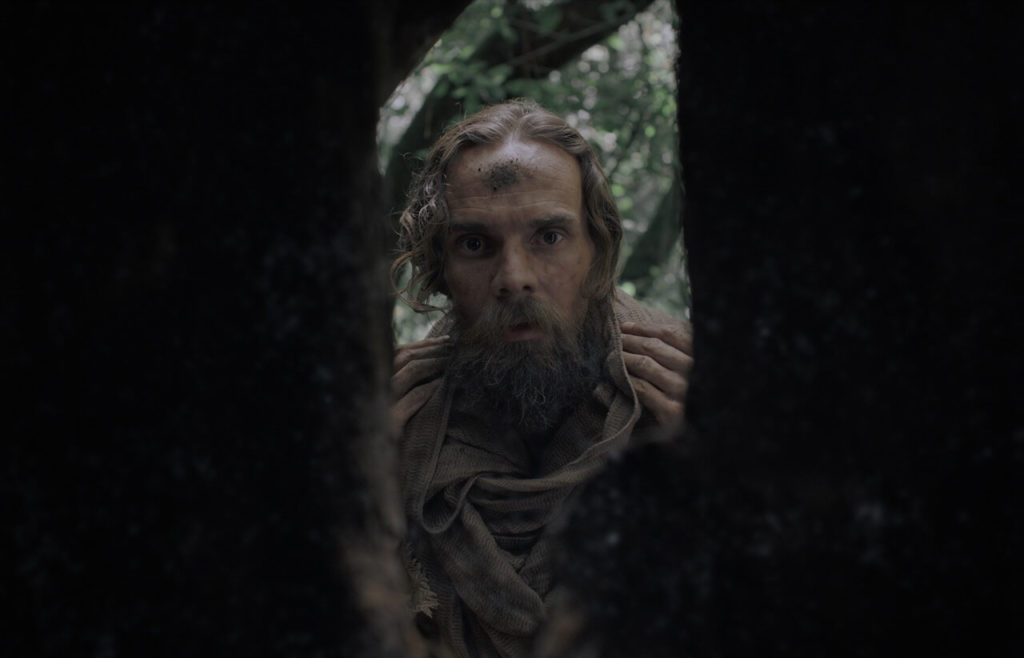
Gaia combines a kind of old testament Christianity with Pagan nature worship that verges on the Lovecraftian. Unspeakable, unknowable horrors that owned the world before the rise of man and will inherit it after we’ve gone; if you’ve ever watched a documentary about mushrooms you’ll know that isn’t far from the truth (and if you haven’t, check out Fantastic Fungi on Netflix).
The monsters themselves look amazing; their concept isn’t unique in horror but it is artfully executed and not overdone. And while “mankind is the real virus” has been done plenty of times, the approach was quite different.
Like the ancient mushroom, the terror of Gaia grows slowly; devouring, subsuming, changing, growing. This film is for the slow burn horror lovers.
Check out the creeping horror of Gaia at this year’s online FrightFest, showing in theatres from 26th to 30th August with digital screenings from 1st to the 5th of September.
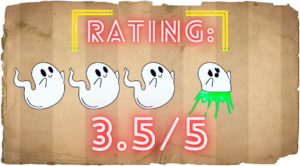
More Film Festival Coverage:
This year was the 14th Grimmfest, and its 15th anniversary. It is a diverse and well respected horror festival that has a lot of the greatest talent the global indie… Here for Blood (2022) truly lives up to its name, catering to those with an insatiable appetite for wicked and outrageous carnage. Yet, beneath this tongue-in-cheek horror, resides a familiar… Prisoners of the Ghostland wastes no time engaging viewers with its opening scene depicting the curious contrast of the stark white interior of a bank with its many patrons donned… In 1967, four South African Republican Intelligence Agents respond to a mysterious object crash landing on a farm, playing out to offer South Africa’s first found footage horror movie. They… In the tradition of pseudo-local-TV broadcasts like Ghostwatch and WNUF Halloween Special, homegrown horror heads to N.Ireland in Dominic O’Neill’s Haunted Ulster Live. Set in 1998, TV newscaster Gerry Burns… The Internet Age has transformed us in so many ways, even down to the way we tell stories to keep pace with advancing technology. Our fledgling fixation on screens has…Grimmfest 2022 Overview
Here for Blood (2022) Film Review- Unhinged B-horror Ride [FrightFest]
Prisoners of the Ghostland (2021) Film Review – East Meets West for a Radioactive Psycho-Western
Wesens (2020) Film Review – A Subversive Mystery From The Afrikaans Sky
Haunted Ulster Live (2023) Film Review – Tune In for Horrors Near You [Unnamed Footage Festival 7]
The Collingswood Story (2002) Film Review – A Pioneering Screenlife Film
Jenny is a creative copywriter living just outside of Liverpool who loves horror, board games, comics, video games and industrial metal.
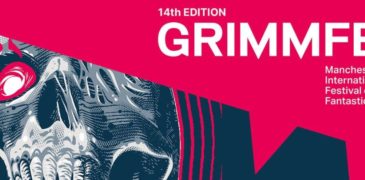
![Here for Blood (2022) Film Review- Unhinged B-horror Ride [FrightFest]](https://www.grimoireofhorror.com/wp-content/uploads/2023/08/Here-for-Blood10-365x180.jpg)
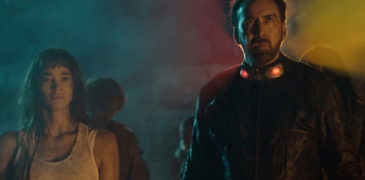
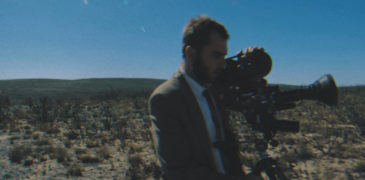
![Haunted Ulster Live (2023) Film Review – Tune In for Horrors Near You [Unnamed Footage Festival 7]](https://www.grimoireofhorror.com/wp-content/uploads/2024/03/Haunted-Ulster-Live-Title-Card-365x180.jpg)
